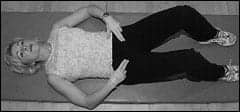The Obama Administration and Congress have signaled that comparative effectiveness will be a key aspect of meaningful health care reform in the United States.
Comparative effectiveness is viewed as research evaluating the clinical effectiveness, risks, and benefits of medical treatments and/or services in hopes of reducing medical costs while improving outcomes. This commitment to comparative effectiveness was signaled by the inclusion of significant funding in the American Reinvestment and Recovery Act of 2009 (ARRA, PL 111-05). Funding will begin being disbursed immediately and be distributed over the next several years.
The money will be split between the National Institutes of Health (NIH), the Department of Health and Human Services (HHS), and the Agency for Healthcare Research and Quality as follows:
· $1.1 billion for head-to-head research to determine which drugs, devices, and procedures are most effective and carry the lowest risk.
· $400 million to be transferred to the Office of the Director of the National Institutes of Health to conduct or report comparative effectiveness research. (See a letter from the Director of NIH.)
· Read a message from the director of the National Institute of Mental Health.
· Find a message from the director of the National Institute of Neurological Disorders and Stroke.
· $400 million shall be available for comparative effectiveness research to be allocated at the discretion of the Secretary of Health and Human Services to accelerate the development and dissemination of research assessing the comparative effectiveness of health care treatments and strategies.
· $300 million will be available for the Agency for Healthcare Research and Quality.
· The legislation also creates a board, called the Federal Coordinating Council for Comparative Clinical Effectiveness Research, to oversee and direct the studies. The Council will be composed of federal agency representatives.
· $1.5 million is allocated to produce a report for Congress and the Secretary of Health and Human Services, by June 30, 2009, that will contain recommendations on the national priorities for comparative effectiveness research. The report must also include input from stakeholders. Work on the report is currently underway at the Institute of Medicine.
As the initiative continues to develop and broaden, the American Occupational Therapy Association (AOTA) will work individually and in coalition with other stakeholders to protect and advance the interests of occupational therapy. AOTA will work to ensure the unique benefits and contributions of occupational therapy are recognized through comparative effectiveness and other outcome-based approaches to evaluating the quality and value of health care interventions.
Universities and other researchers are advised to watch the NIH Web site and to develop relationships with your members of Congress to take advantage of potential funding opportunities.




